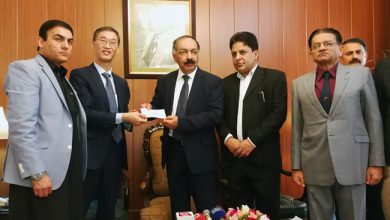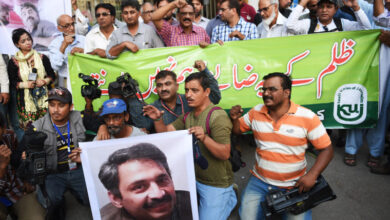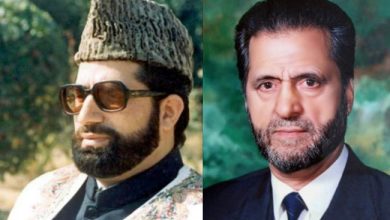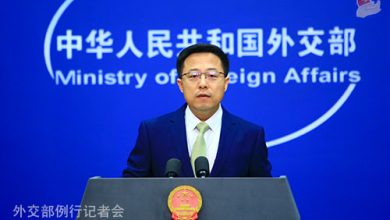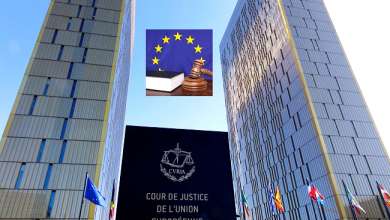The acts of the Indian army are of a vile nature and have severe consequence

Foreign Ministry Spokesperson Zhao Lijian’s Regular Press Conference on June 24, 2020
Recently the incident in the Galwan Valley in the western sector of the China-India border has received much attention. I already went through the ins and outs of the whole incident on June 19. The merits of what happened are very clear. None of the responsibility lies with China.
First, it is the Indian border troops who crossed the line first. The Line of Actual Control (LAC) in the western sector of the boundary is clear. The Galwan Valley lies on the Chinese side of the LAC. The Chinese border troops, who have all along been patrolling the area, know very well the situation of management and control on the ground. Since April this year, the Indian side has been building roads and bridges at and across the LAC in the Galwan Valley, unilaterally changing the status quo. China has lodged representations on multiple occasions. On the early morning of May 6, Indian border troops crossed the LAC under the cover of night, trespassed into China’s territory and deliberately made provocations. The Chinese border troops were compelled to take necessary measures to respond to the situation on the ground and strengthen management and control along the border.
Second, it is the Indian side that violated bilateral consensus and started provocations first. In the presence of China’s diplomatic representations and military pressure, India originally agreed to withdraw its personnel who crossed the LAC and dismantled the facilities it built across the LAC as China demanded. In the first round of commander-level talks on June 6, the Indian side promised that it would not cross the river mouth of the Galwan river to patrol and build facilities. The two sides also agreed to build observation posts on either side of the Galwan river mouth. However, the Indian side later reneged on the consensus, wantonly demanded that China dismantle its observation post, and once again crossed the line for provocations, which triggered the conflict.
Third, it is the India side that violated international rules and attacked the Chinese side first. On the night of June 15, Indian frontline troops breached the agreement of the commander-level talks, once again crossed the LAC, and demolished the tents built by the Chinese side. When the Chinese army officers and soldiers came to negotiate as per customary practices on handling border-related issues, the Indian troops attacked them in an abrupt and violent manner, which led to fierce physical confrontations and casualties. The adventurous acts of the Indian army seriously violated the agreements reached between the two countries on the border issue, and breached the basic norms governing international relations. The acts of the Indian army are of a vile nature and have severe consequences.
As agreed by the Chinese and Indian foreign ministers during their phone call on June 17, both sides agreed to handle in a just manner the serious situation caused by the Galwan Valley clash, observe the agreement reached during the commander-level talks, cool down the situation on the ground as soon as possible, and uphold peace and tranquility of the border areas in accordance with bilateral agreements reached so far. From June 22 to 23, the two sides held the second round of commander-level talks and agreed to jointly take necessary measures for de-escalation, and work together for the peace and tranquility in the border areas. We hope the Indian side can strictly observe and implement the above-mentioned consensus, meet China halfway and take real actions to restore peace and stability in the border areas.
CCTV: The US State Department designated four Chinese media’s US operations as foreign missions. Not long ago it began restricting visas for Chinese journalists. These measures will undoubtedly affect the work and life of Chinese journalists stationed in the US. Is China considering countermeasures for American media and journalists?
Zhao Lijian: China has solemnly stated its position and repeatedly lodged stern representations with the US side.
The US has long been applying discriminatory restrictive measures with regard to visa and other matters on Chinese journalists, for example, only granting them single-entry visas. As a result, many could not get back to their posts in the US because their visa applications were denied without cause after a vacation in China. Besides, Chinese journalists are required to provide a large amount of additional materials when applying for a visa. Since 2018, more than 20 Chinese journalists’ visa applications have been denied without cause. Last month, the US limited visas for Chinese journalists to a maximum 90-day stay, which means they will have to apply for an extension every 90 days and will be forced to leave if not granted an extension. This is indeed harsh treatment compared to the one-year multiple-entry visa China grants resident US journalists. It is clear that the US is deliberately making things hard for Chinese journalists and seriously disrupting Chinese media’s reporting in the US.
Now the US has designated four more Chinese news agencies as foreign missions in further escalation of its political oppression targeting Chinese media. This fully exposes the stark double standards and bullying approach behind the US banner of press freedom.
In response to the wanton oppression by the US side, China already announced countermeasures in March. We urge the US to stop political oppression and wanton restrictions targeting Chinese media, immediately change course and correct its mistake. If it is bent on going down the wrong path, China will have to take legitimate necessary reactions.
China Daily: Speaking via videolink at the Copenhagen Democracy Summit and in some recent interview, US Secretary of State Pompeo attacked China on a range of issues including Xinjiang-related matters. Could you comment on that?
Zhao Lijian: Mr. Pompeo has been launching unwarranted attacks and slanders against China on every possible occasion. However, lies repeated a thousand times are still lies. His groundless clichés expose deep-rooted Cold-War mentality, a zero-sum game mindset, ideological bias, and his nature of “lying, cheating and stealing.”
One can never wake a person who pretends to be asleep. The lie of “one million Uyghurs detained in Xinjiang” was actually made up by an NGO funded by the National Endowment for Democracy after interviewing only eight persons. And Mr. Pompeo blindly cites it with no verification. China has stressed time and again that the vocational education and training centers lawfully set up in Xinjiang are active attempt on and useful exploration of preventive counter-terrorism and de-radicalization measures. They are essentially the same as other countries’ practice to this end, and they have already yielded good results. Xinjiang hasn’t seen a single terror incident in the past three years or so. By the end of 2019, all trainees who received trainings including standard spoken and written Chinese, understanding of the law, vocational skills, and deradicalization had completed their courses, secured employment, and started a life of tranquility.
The Chinese government protects its people’s freedom of religious belief. In China there are nearly 200 million religious believers, of which over 20 million are Muslims. There are more than 380,000 clerical personnel, approximately 5,500 religious groups and more than 140,000 places of worship registered for religious activities. Xinjiang now has 24,400 mosques, one for every 530 Muslims. By contrast, the number of mosques in the US nationwide is less than one tenth of those in Xinjiang. Mr. Pompeo’s repetition of lies just cannot change those facts.
According to US media reports, the country is witnessing paltry efforts on handling COVID-19, an economy falling into recession, serious systemic racism, social disturbances, drug abuse and frequent mass shootings. How come Mr. Pompeo still accuses China with such blatancy? My advice to him: spend some time on managing domestic affairs before pointing finger at others.
CNR: On June 23, the US State Department released the 2020 Report on Adherence to and Compliance with Arms Control, Nonproliferation, and Disarmament Agreements and Commitments (Compliance Report) in which it accused China of not fulfilling its commitment to nuclear testing moratorium and missile non-proliferation and questioned the voluntary Biological Weapons Convention confidence building measure (BWC CBM) declarations China has submitted. What’s your comment?
Zhao Lijian: We noted the report. The US government has been compiling the so-called Compliance Report annually, posturing as a referee or judge to criticize other countries’ arms control and non-proliferation measures and style itself as a “model”. This is as absurd as the thief calling others thieves.
In recent years, the US, under the banner of “America first”, has walked back on one commitment after another. It pulled out of the JCPOA and the INF Treaty, the Open Skies Treaty, unsigned the Arms Trade Treaty (ATT), stood singly in the way of negotiations for a BWC protocol that includes a verification regime, has yet to destroy its chemical weapons stockpile, is deliberating resuming nuclear tests, and adopts a negative attitude on extending the New START with Russia. What it has done seriously disrupts global strategic equilibrium and stability and hampers international arms control and disarmament process. It has been condemned by the international community. However, instead of reflecting upon itself, the US tries to throw mud at others in an attempt to create pretexts for its own abandonment of obligations and look for scapegoats to deflect attention. The whole world, including insightful people in the US, can see through this.
I need to point out that the US accusations against China are purely groundless fabrications. With a high sense of responsibility, China faithfully fulfills its international obligations and commitments and firmly upholds multilateralism, contributing to safeguarding the international arms control and non-proliferation regime as well as world peace and security. You may have noted that the NPC Standing Committee has recently passed the decision on China’s accession to the ATT. This stands in sharp contrast with the US withdrawal from the same treaty. When it comes to compliance with arms control instruments, the international community has a fair judgment on whether China or the US has a better record.
Shenzhen TV: John Bolton wrote in his new book that Trump wants to use Meng Wanzhou as a bargaining chip in trade talks. Prosecutions against Meng could be dropped in exchange for concessions from China. Can you confirm that?
Zhao Lijian: You may need to ask the US side for what was mentioned in the book.
China’s position on the Meng Wanzhou incident is consistent and clear.
CRI: On June 23, the Arab League foreign ministers held an emergency meeting on Libya and adopted a resolution opposing external military intervention, calling for an immediate ceasefire and voicing support for a political settlement. Does China have a comment?
Zhao Lijian: China supports the Arab League in playing an active role on the Libya issue and welcomes all mediation efforts towards easing tensions, including the Cairo Declaration of June 6 proposed by parties including Egypt. China opposes military intervention by foreign forces and believes that military means is a dead end in Libya. Relevant parties should seek a political settlement under UN auspices while attaching high importance to counter-terrorism efforts. China calls on the conflicting parties to put national interests and people’s welfare first, hold negotiations on ceasefire soon as possible, and work to stabilize the situation.
FSN: Some Canadian officials and legal experts have suggested that Canada could legally release Meng Wanzhou, but it would comprise the integrity of Canada’s democracy and justice system. Do you have any comment to that? Also, there are several ways that Michael Kovrig and Michael Spavor could be offered a way of accessing consular services. Why is this being denied to them even though this is the limited form of access to the outside world?
Zhao Lijian: Besides what you mentioned, we have also seen reports of an interview with Kovrig’s wife on June 23, during which she said that the Canadian justice minister had the authority to stop Meng Wanzhou’s extradition process at any point; such options are within the rule of law and could open up space for resolution to the situation of the two Canadians.
China has repeatedly stated its position on the case involving Michael Kovrig. The case is handled by competent authorities in accordance with law, and Kovrig’s legitimate rights are fully guaranteed. After COVID-19 broke out, relevant Chinese authorities overcame inconveniences and difficulties brought by the epidemic and took humanitarian measures to ensure the safety and health of detainees including Kovrig. In light of the health conditions of Kovrig’s family, the authorities, acting within the scope of legal provisions, allowed Kovrig to speak by phone with his family, for which he expressed gratefulness. As to consular visits, they will be resumed duly once the epidemic situation gets better.
With regard to the Meng Wanzhou incident, China’s position is clear. It is a serious political incident. Even if it is a judicial case as the Canadian side claims, the Canadian justice minister has the authority to stop the extradition process at any point, as Kovrig’s wife said. This shows that the Canadian government can actually handle this incident in a just manner according to Canadian laws. Once again we urge the Canadian side to earnestly respect the spirit of rule of law, treat China’s solemn position and concerns seriously, stop political manipulation, immediately release Ms. Meng and ensure her safe return to China.
The Paper: Japanese media say that Katsuo Nishiyama, a Japanese scholar, recently released a government document of the study and production of bacteria by Unit 731 in China, which is the first published official document in this field. Does China have any comment on it?
Zhao Lijian: During the WWII, in blatant violation of international law, the Japanese army operated a most horrific bacterial warfare with the Chinese people during its aggression against China. The official document disclosed by the Japanese scholar is another solid proof of the bacterial warfare launched by the Japanese militarism. There’s no room for denial or sophistry. We appreciate the courage of people with vision in Japan to reveal and face the historical facts. We hope the Japanese side can heed the call of justice, both domestically and internationally, earnestly face up to and show remorse for its history of militarist aggression, and avoid a repetition of past lessons.
Sputnik News Agency: Today Russia is holding a military parade to commemorate the 75th anniversary of victory of the Great Patriotic War. Can you talk about the PLA’s participation in the parade?
Zhao Lijian: We noted Russia is holding the military parade in Moscow’s Red Square to commemorate the 75th anniversary of victory of the Great Patriotic War. It will surely be a complete success.
This year marks the 75th anniversary of the victory of WWII. As a major victorious nation, Russia made important contributions to the victory of the war. Russia’s grand commemoration of this occasion shows that it respects and remembers history and is firmly determined to safeguard outcomes of the victory of WWII. China is also a major victorious nation of the WWII. We stand together with Russia and the rest of the international community to uphold the correct view on WWII and oppose attempts at misrepresenting history or whitewashing aggression to safeguard the hard-won world peace.
China has sent a delegation and guards of honor to the parade. More information will be released in due course.
MBC: Tomorrow will be the 70th anniversary of the start of the Korean War. Now the Korean Peninsula is still in a state of war, and China and the US still have various differences and concern on matters surrounding the Peninsula. What is China’s comment on the current situation on the Korean Peninsula and on the attitude of US?
Zhao Lijian: Safeguarding peace and stability on the Korean Peninsula serves the interests of all parties and requires the efforts from all sides. In recent years, the Peninsula issue has been brought back onto the right track of political settlement. We hope all parties can cherish this hard-won momentum, stick to dialogue and consultation, and work together to realize lasting peace and stability on the Peninsula and in the region.
AFP: Lowy Institute had an opinion poll which showed that the number of Australians who trust China to act responsibly on the world stage fell from 52 percent in 2018 to a record low of 23 percent. Do you have a comment? What is your evaluation of the current China-Australia relations?
Zhao Lijian: Australia’s erroneous practices in its relations with China are not conducive to creating a favorable atmosphere of public opinion between the two peoples.
China’s position on developing China-Australia relations is consistent and clear. A healthy and stable China-Australia relationship serves the common interests of both countries, but it requires the joint efforts of both sides. We hope that the Australian side will work with the Chinese side, earnestly uphold the principles of mutual respect, equality and mutual benefit, and do more things that are conducive to China-Australia mutual trust and cooperation and in line with the spirit of China-Australia comprehensive strategic partnership.
The Paper: According to Japanese media reports, on June 24, the Japanese government will hold a national security meeting to revise the current National Security Strategy and discuss contents such as having the capability to attack enemies’ bases. I wonder if you have any comment?
Zhao Lijian: We noted this report. Due to historical reasons, developments in Japan’s military security have been closely followed by its Asian neighbors and the international community. Some in Japan have long been hyping up so-called “external threats” in order to free itself under various pretexts and achieve some breakthroughs in its military security policies. However, this intention has been seen through by the world. We urge Japan to draw lessons from history, faithfully implement its “exclusively defense-oriented policy”, and stay committed to peaceful development by taking real actions.
China News Service: The Chinese medical team to Bangladesh has returned home after completing their mission. Can you give us more details on their work in Bangladesh?
Zhao Lijian: At the early stage of the COVID-19 outbreak, Bangladesh gave China support and assistance. Likewise, when COVID-19 spread in Bangladesh, the Chinese government and companies provided support and help to Bangladesh to the best of our ability. The team of medical experts you mentioned arrived at Bangladesh on June 8 and returned to China after accomplishing their mission on June 22.
During their 14-day stay in Bangladesh, the experts visited health authorities, key hospitals and nucleic acid testing labs, had discussions with Bangladeshi medical personnel, talked in detail of China’s anti-epidemic experience, conducted technical training, provided guidance on epidemic prevention and control, and answered questions raised by the Bangladeshi side regarding the practical problems they encountered. The Bangladesh side welcomes and highly recognizes their efforts, which they believe will enhance local capacity of prevention and control.
I’d like to stress that the Chinese expert team was the first official medical team sent to Bangladesh by a foreign country after the epidemic broke out in Bangladesh, vividly demonstrating the fine tradition of mutual assistance between China and Bangladesh. I believe our friendship will be further consolidated and elevated as we fight the pandemic together.
China will continue standing firmly with Bangladesh and other regional countries to combat COVID-19 together. Hand in hand, we are striving for an ultimate victory against the virus at an early date.
TASS: Wall Street Journal reported on June 23 that to get close to President Trump, in April 2017, four Chinese nationals poured hundreds of thousands of dollars into Trump Victory for his re-election. What’s the foreign ministry’s comment on it?
Zhao Lijian: I haven’t read that report. It is China’s consistent policy that we do not interfere in other countries’ internal affairs. We are not interested in the presidential election in the US.

